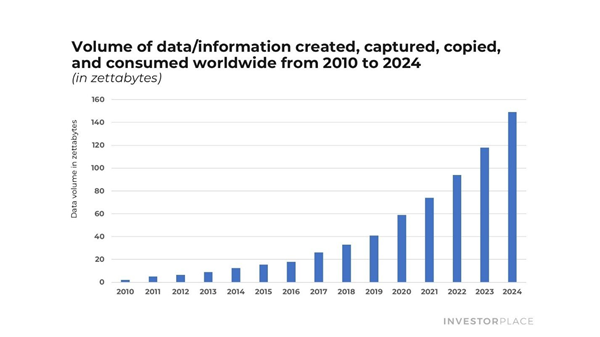It’s October 1950. Alan Turing — the generational genius who cracked the Enigma code and helped end World War II — has just introduced a novel concept.
It’s called the “Turing Test,” and it’s aimed at answering the fundamental question: Can machines think?
The world laughs. Machines — think for themselves? Not possible.
However, the Turing Test sets in motion decades of research into the emerging field of Artificial Intelligence (AI).
This is research conducted in some of the most prestigious labs in the world by some of the smartest people in the world, collectively working to create a new class of computers and machines that can, indeed, think for themselves.
Fast forward 70 years.
AI is everywhere.
It’s in your phones. What do you think powers Siri? How does a phone recognize your face?
It’s in your applications. How does Google Maps know directions and optimal routes? How does it make real-time changes based on traffic? And how does Spotify create hyper-personalized playlists for you or Netflix recommend movies?
AI is on your computers. How does Google suggest personalized search items for you? How do websites use chatbots that seem like real humans?
As it turns out, the world shouldn’t have laughed back in 1950.
The great Alan Turing ended up creating a robust foundation upon which seven decades of groundbreaking research has compounded. Ultimately, it resulted in self-thinking computers and machines not just being a “thing” — but being everything today.
Make no mistake. This decades-in-the-making “AI Revolution” is just getting started.
That’s because AI is mostly built on what industry insiders call “machine learning” (ML) and “natural language processing” (NLP) models. And these models are informed with data.
Accordingly, the more data they have, the better the models get — and the more capable the AI becomes.
Machine Learning Breakthroughs
When I say “identity,” what do you think of?
If you’re like me, you immediately start to think of what makes you, well, you — your height, eye color; what job you have, what car you drive, what shows you like to binge-watch.
In other words, the amount of data associated with each individual identity is both endless and unique.
Those attributes make identity data extremely valuable.
Up until recently, though, enterprises had no idea how to extract value from this robust dataset. That’s all changing right now.
Breakthroughs in artificial intelligence and machine-learning technology are enabling companies to turn identity data into more personalized, secure and streamlined user experiences for their customers, employees and partners.
The volume and granularity of data is exploding right now, mostly because every object in the world is becoming a data-producing device.
Dumb phones have become smartphones and have started producing a ton of phone usage data.
Dumb cars have become smart cars and have started producing lots of in-car driving data.
And dumb apps have become smart apps and have started producing heaps of consumer preference data.
Dumb watches have become smartwatches and have started producing bunches of fitness and activity data.
The AI Revolution
As we’ve sprinted into the “Smart World” — where every object is a data-producing smart device — the amount of data that AI algorithms have access to has exploded at lightning speed, making them more capable than ever.
Why else has AI has started popping up everywhere in recent years? It’s because 90% of the world’s data was generated in the last two years alone.
More data, better ML and NLP models, smarter AI.
It’s that simple.
And guess what? The world isn’t going to take any steps back in terms of this “smart” pivot. No. We love our smartphones and smart cars and smartwatches far too much.
Instead, society is going to accelerate in this transition. Globally, the world produces about 2.5 exabytes of data per day. By 2025, that number is expected to rise to 463 exabytes.
A New Era of Machine Learning
Let’s go back to our process.
More data, better ML and NLP models, smarter AI.
Thus, as the volume of data produced daily soars more than 185X over the next five years, ML and NLP models will get 185X better (more or less), and AI machines will get 185X smarter (more or less).
Folks, the AI Revolution is just getting started.
As my friends in the machine learning and robotics fields like to remind me, most things a human does, a machine will be able to do better, faster and cheaper — if not now, then soon.
I’m inclined to believe them, given the advancements AI has made over the past few years with the help of data — and the exponential amount of it yet to come over the next few years.
Eventually — and inevitably — the world will be run by hyperefficient and hyperintelligent AI.
I’m not alone in thinking this. Gartner predicts that 69% of routine office work will be fully automated by 2024, while the World Economic Forum has said that robots will handle 52% of current work tasks by 2025.
The AI Revolution is coming — and it’s going to be the biggest revolution you’ve seen in your lifetime.
Democratizing the Power of AI
You need to be invested in this emerging tech megatrend that promises to change the world forever.
Of course, the question remains: What AI stocks should you start buying right now?
You could play it safe and go with the blue-chip tech giants, all of whom are making inroads with AI and are low-risk, low-reward plays on the AI Revolution. I’m talking Microsoft (NASDAQ:MSFT), Alphabet (NASDAQ:GOOG), Amazon (NASDAQ:AMZN), Adobe (NASDAQ:ADBE) and Apple (NASDAQ:AAPL).
However, that’s not how we do things. We don’t like “safe” — we like “best.”
At present, enterprise AI software is being used very effectively by Big Tech — and being used ineffectively or not at all by everyone else.
Today’s AI companies are changing that. And the best way to play the AI Revolution is by buying the stocks that are changing the paradigm in which they exist.
And at our flagship investment research advisory Innovation Investor, we have put together two entire portfolios — the Automation Economy portfolio and the Big Data & Cloud portfolio — dedicated exclusively to the best AI stocks to buy today.
Between those two portfolios, we have identified several AI stocks to buy for enormous long-term returns.
Again, these AI stocks aren’t the “safe” way to play the AI Revolution. They’re the best way to do it.
Play to Win
One company is pioneering a novel model-driven architecture. Indeed, it represents a promising paradigm shift in the AI application development process that will ultimately democratize the power of AI so that it’s no longer a weapon used by Big Tech to crush its opponents.
Essentially, this company has pre-built multiple, highly scalable AI models in its ecosystem. And it allows customers to build their own AI models by simply editing these pre-built models and stacking them on top of one another.
Think of building an AI application as a puzzle. You must have the right pieces and directions. In other words, all customers have to do to effectively utilize the power of enterprise AI is piece it together in a way that works best for them.
Equally important, the building of these puzzles is not rocket science. The company does all the hard work of making the actual models. Customers simply have to pick which ones they want to use and decide how they want to use them.
In some instances, coding and data science are still required — but not much. Today’s top AI companies make it easy to develop, scale, and apply insights without writing any code.
It’s a genius breakthrough to address the widening AI gap between Big Tech and everyone else.
Eventually, every company from every industry and of every size will leverage the power of AI to enhance their business, increase revenues and reduce costs.
Of course, this reality bodes well for AI stocks in the long term.
You just have to know which ones are worth buying and which ones are not…
On the date of publication, Luke Lango did not have (either directly or indirectly) any positions in the securities mentioned in this article.


